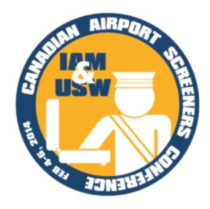Recently I had the privilege of attending the International Transport Workers Federation (ITF) civil aviation section meeting in London. During this meeting many topics were discussed that impact on aviation workers worldwide.
Along with the country reports submitted by each union present, discussions took place on the International Labour Organization’s (ILO) 34 page report called “Effects of the Global Economic Crisis on the Civil Aviation Industry” published in February 2013. This initiative was adopted at this ITF Civil Aviation meeting in London, and provides a clear direction to the ITF secretariat and ITF delegates.
By way of background, initial discussions had taken place in Geneva at the ILO level starting in 2012, regarding the economic crisis in the civil aviation industry, in order to reach a common understanding about the difficulties the industry has undergone such as: the structural changes, and the effects of the low cost carrier model on the industry as a whole. The goal was to reach a consensus on a shared approach that could contribute to a more sustainable industry.
At the 6th International Civil Aviation Organization (ICAO) conference, the main topics of discussion were liberalisation and deregulation agendas. As a result the ITF delegation introduced seven discussion papers to influence the debates. The ITF’s main focus was to eliminate the possibility of a risk that airlines would seek to relocate or flag-out to countries with lower social and labour costs and bring the flag of convenience problem into the aviation industry.
Of the seven papers presented the following pertained to ground staff in the civil aviation sector: Ultrafine particles (UFP’s), Just culture, Airport infrastructure, and Labour rights in fast growing airlines. All of these positions are posted on the ITF website.
The State of the MRO Industry worldwide
The state of the MRO industry worldwide was another topic discussed at the ITF Civil Aviation meeting. Each union was asked to provide a report for their country describing the MRO industry in that country and identify concerns. The IAM was happy to cooperate and as a result a joint USA/Canadian MRO was submitted. See link attached. This will become a living document in that as we get new information, we will be able to update it regularly.
The focus of this ITF initiative is to track where all of the aircraft maintenance activities such as repairs and overhaul are taking place for each Airline around the world. Although the work may already have been outsourced, the intent is to find out where it is now being carried out, and possibly inform the unions in that country. This allows these unions to turn their attention to organizing those workers to ensure they are being compensated properly and that there is negotiated safety and health language to allow for proper workplace standards to be in place.
Since the free trade agreements were signed, most companies are trying to find the lowest paid workers to further maximize their profits. This is one way we can ensure that workers worldwide are not taken advantage of by putting in place good working conditions and decent wages for their families.
It is hoped that the ITF can generate information about the MRO activities worldwide and link it to another of their projects called “Components to Carriers” being headed up by Ingo Morowski. There is more information on this initiative on the ITF website. I have indicated my support for this project and will continue to provide information to the ITF on an ongoing basis.
Finally, Ground staff levels required by aircraft type, is another project the ITF is pursuing to gather data from around the world from all unions. It is hoped that if enough information is received, the ITF could develop minimum levels of ground staff required to service aircraft so that safe working conditions can be achieved through a worldwide standard for all unions to negotiate into their collective agreements.
I will be sending out more information on Ground Staff Levels along with a questionnaire so that we can collect data from each area of Canada for each company we represent for the Airbus A-320 and Boeing B-737 family first. Eventually this will expand to include all of the other aircraft in operation.
Carlos DaCosta
November 2013


